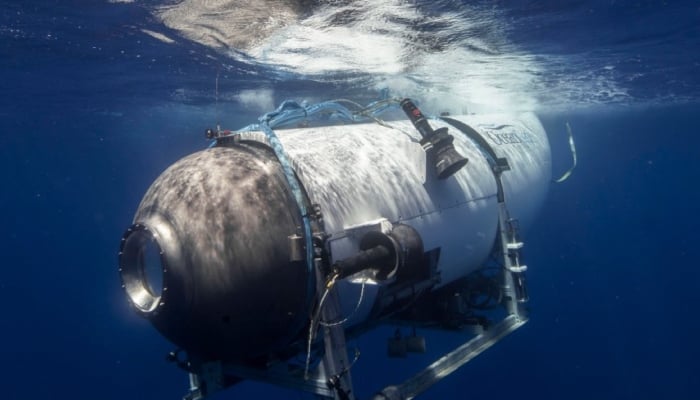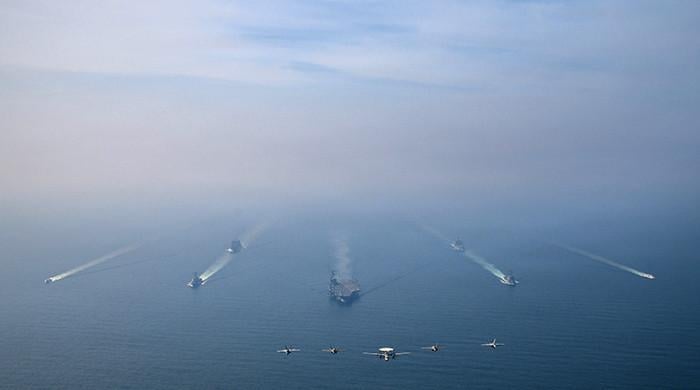Titan implosion: What happened to bodies and will they ever be recovered?
This is a tragic event, and it's important to learn from it to prevent future accidents.
June 24, 2023

US authorities have confirmed the tragic loss of the submersible Titan, which disappeared during a dive to the site of the wreckage of the Titanic ship almost a week ago.
All five men on board lost their lives in what was described as a "catastrophic implosion," or a violent collapse inwards. While some details about the event have been established, many questions about what exactly happened remain unanswered, and calls are emerging for a full investigation.
One of the people raising concerns about the incident is Lucy Cosnett, the cousin and goddaughter of Hamish Harding, one of the men on board. She believes that more safety checks should have been done and that the company OceanGate should have done more to ensure the safety of their crew.
Lucy told the BBC that the incident should be fully investigated to understand what went wrong, why it happened, and why the crew did not survive. This is a tragic event, and it's important to learn from it to prevent future accidents.
Recovery of the bodies
US Coast Guard Rear Admiral John Mauger said on Thursday that he was unsure whether it would be possible to locate the bodies of the five men who died in the Titan submersible.
"This is an incredibly unforgiving environment," he said, referring to the deep and dangerous underwater area where the submersible disappeared.
Those aboard included wealthy British businessmen Hamish Harding and Shahzada Dawood, whose son Suleman joined them on the Titan. OceanGate CEO Stockton Rush was also part of the crew, along with former French navy diver Paul-Henry Nargeolet. It's a tragic situation, and the families of those who died deserve to know what happened and to have closure if possible.
Proceedings on the search
It's unclear which agency will take the lead in the investigation into the loss of the Titan submersible, as there is no established protocol for such incidents.
Rear Adm Mauger said the incident was particularly complex because it occurred in a remote part of the ocean and involved people of different nationalities.
However, the US Coast Guard is likely to play an important role, given its leading role in the operation so far.
The Coast Guard said it would continue to investigate the debris field, and vessels and technicians would remain in the area. Other teams were slated to start demobilizing on Friday, with equipment that is no longer necessary withdrawn. The remote operating vehicles (ROVs) sent to the sea floor to explore the Titanic wreckage will remain for the time being. Pelagic Research Services, whose ROV discovered the debris field, said it would send the vehicle down again to continue mapping and documenting the area, as well as help with debris recovery. The company plans to remain on-site conducting ROV missions for another week.
Sub debris clean-up
Efforts are continuing to map the area where parts of the Titan submersible were found, and it will be essential to gather up as much of the debris as possible, including bits of the carbon fibre used to construct the vessel.
This will help authorities build up a picture of what happened. Undersea expert Paul Hankin said that five main pieces of the sub's hull and exterior had been recovered so far, including the nose cone.
Ongoing investigation of the incident
On Friday, federal transportation agencies in Canada and the US announced that they would investigate the incident involving the Titan submersible.
The National Transportation Safety Board (NTSB) and US Coast Guard will lead the investigation in the US. Canada has dispatched a team of investigators to Newfoundland to conduct interviews and coordinate with other agencies.
Those involved in the inquiry will be trying to confirm the theory that an implosion caused the deaths of those aboard the Titan and, if so, when and why it happened. Hydrophones could be another potential source of information about what happened to the Titan.
These underwater microphones could have picked up the end of the Titan and could give us an exact time for when the tragedy occurred. The US Navy detected sounds "consistent with an implosion" shortly after the submersible lost contact, a navy official has said.











